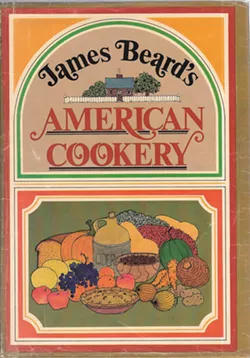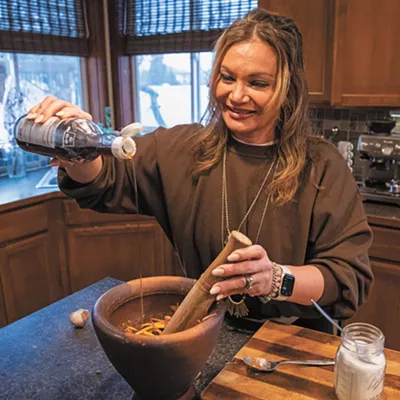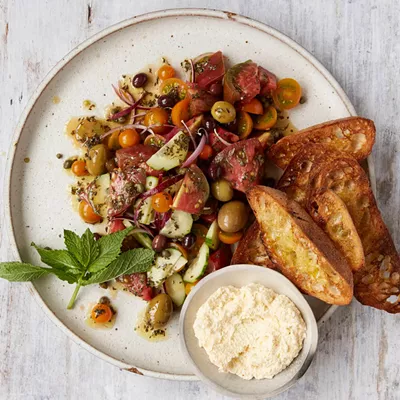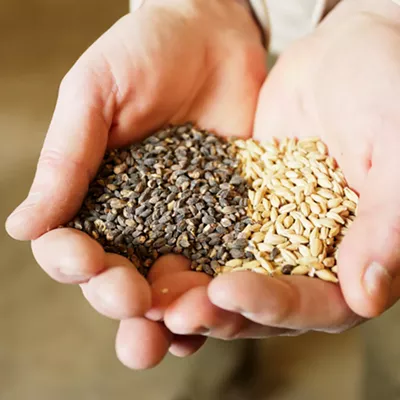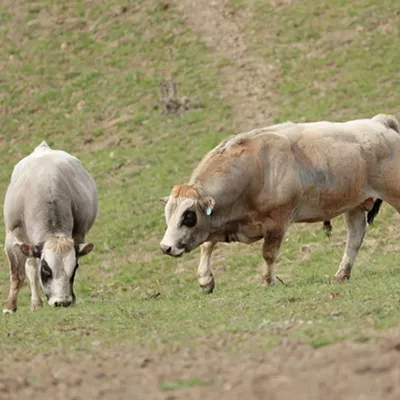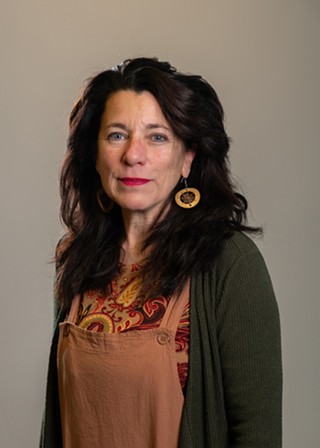Cookbooks contribute to an overall narrative about humans, but also to the individual story of the person who bought or was gifted the book.
Forty years ago, recalls chef Laurent Zirotti, he was asked if he was familiar with James Beard, whose legacy includes 20-plus cookbooks, the earliest televised cooking shows and a posthumous foundation that has redefined culinary industry standards through its namesake awards program. He was 19 years old and a recent arrival to San Francisco from France.
"I was like, 'James Beard? I don't know that guy,'" says Zirotti, who, in 2017, was a James Beard Award semifinalist for the Best Chef: Northwest category. He smiles at the irony.
But Zirotti was curious and aspirational, so he bought James Beard's American Cookery, a hefty tome with 1,500 recipes but no pictures. Zirotti was underwhelmed, he says, and shelved the book.
Short, funny story. Now for the twist.
Since closing his popular Fleur de Sel restaurant in Post Falls, which Zirotti and his wife, Patricia, ran from 2008 to 2021, he's been an instructor for Community Colleges of Spokane's culinary program.
"I had a student this quarter that is very engaged in food, is very passionate about it, and asked [a lot of] questions," explains Zirotti. So he gave that student American Cookery and told him, "You are James Beard material."
Cookbooks make good gifts that way, reflecting who we are or could be in relation to food.
When one of my high school art students became pregnant her senior year, I gave her the Betty Crocker cookbook I'd inherited from my mother. The book was dog-eared and stained with evidence of two generations of women — soon to be three generations — navigating the path to adulthood from cookies to casseroles. I treasured it, but I'd moved on to different relationships with food and cooking.
Now Betty Crocker's recipes and a zillion other how-tos can be found online, yet cookbooks endure, amounting to a roughly $20 million industry. Is it the pretty pictures? The immediacy of pages you can quickly flip to? Or that they're bona fide in a way that online content might not be?
All of those things are important, says Michelle Ho, whose culinary experience includes a stint as pastry chef with the Davenport Hotels, as well as Rind and Wheat. She was included in Ari Nordhagen's The Spokane Cookbook with a recipe Ho sometimes serves at Feast World Kitchen.
Ho is in her late 20s and has never not known smartphones or the internet, even in her native Hong Kong, which has been less restricted on the web than the rest of China. And although she watches a lot of cooking videos, like those from YouTube chef SingSingKitchen, she prefers the chef's physical cookbook, which is easier to follow and more detailed.
"I still like cookbooks more than the phone," Ho says, pulling several of them out of her bag during our interview. Each offers a snapshot of her personal and professional evolution.
Inspired by a visit to Paris, Ho bought Christopher Felder's bright pink hardcover, Patisserie: Mastering the Fundamentals of French Pastry and cooked her way through COVID.
Kenmizaki Satomi's Oishisa No Kotsu Ga Hitome De Wakaru Kihon No Ryoì Ri is from Ho's brief time attending language school in Japan. Translating the title to mean "something like Japanese basic home cooking," Ho says it helped her understand both Japanese writing and customs.
Cookbooks are "a really good tool to connect to different cultures, even if you don't know the language," Ho says.
When her husband and fellow CCS graduate, Sebastian Zowal, wanted to cook authentic Chinese food, Ho suggested All Under Heaven by food scholar Carolyn Phillips. It's a deep dive into 35 of China's distinct culinary traditions, which is not typical for cookbooks by Chinese authors, Ho says.
"Sometimes I feel in China people really don't really want to share a recipe to people, especially industry people," says Ho, who learned to cook by watching her mother and grandmother, neither of whom wrote anything down or used conventional measurements.
Ho is hoping to add one more book to her library: the recipes written by her grandfather, also a pastry chef. For now, they exist in digital images on her cell phone, but Ho hopes to make the information more permanent, maybe even share them with others as a way of preserving her culture.
"I don't want any good recipes to get lost," she says.
Maren Scoggins feels the same way about recipes for ice cream and other sweet treats she created in 2016 as chef-owner of Abi's Ice Cream. Even before she closed the downtown Coeur d'Alene venue in 2022, Scoggins was at work on Abi's Ice Cream: The Cookbook.
"I wanted people to be able to do this at home," Scoggins says. "Ice cream is easy to make, but it seems like it's really magical." And when you make ice cream, she says, it becomes part of a good memory.
Scoggins' memories from 10 to 15 years ago when she discovered Food & Wine magazine recipes have shaped how she approached making ice cream and the recipes she still favors.
They focused on fewer but elevated ingredients, says Scoggins, who also really likes The French Laundry Cookbook by celebrated chef Thomas Keller featuring recipes from his eponymous — and consistently Michelin-starred — restaurant. Keller's Ad Hoc at Home, she says, is a little more accessible to the average cook.
"The food was just phenomenal," Scoggins says. "It was so simple and so that's really kind of where it got me on this track of simple, quality ingredients that really get the best tasting food."
Scoggins emulated that approach when making ice cream for Abi's.
"Every ice cream has the base of just five ingredients [of] cream, milk, egg, sugar, and kosher salt," she explains.
After that, Scoggins gets creative with flavor profiles. A vegetarian Indian cookbook in her collection, for example, inspired both a curry and a chai ice cream for Abi's.
Inspiration is also what motivates Zirotti to pick up a cookbook, and that can be from images but also the serendipity of flipping through the book's pages.
Although he still has a typewritten, mimeographed collection of French classic recipes he acquired as a 15-year-old aspiring chef — the proportions are spot on, he says — Zirotti is always on the lookout for new cookbooks.
Right now, he's keen to buy J. Kenji López-Alt's The Food Lab. As he gets older and has transitioned from chef to instructor, Zirotti wants to better understand the science behind the ingredients and dishes he and his students create.
"At 60 years old I'm still learning," he says. "I mean, this is fantastic. I still am excited about opening a book and reading through it." ♦


